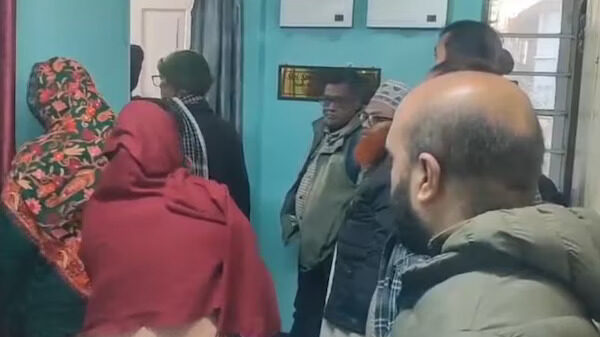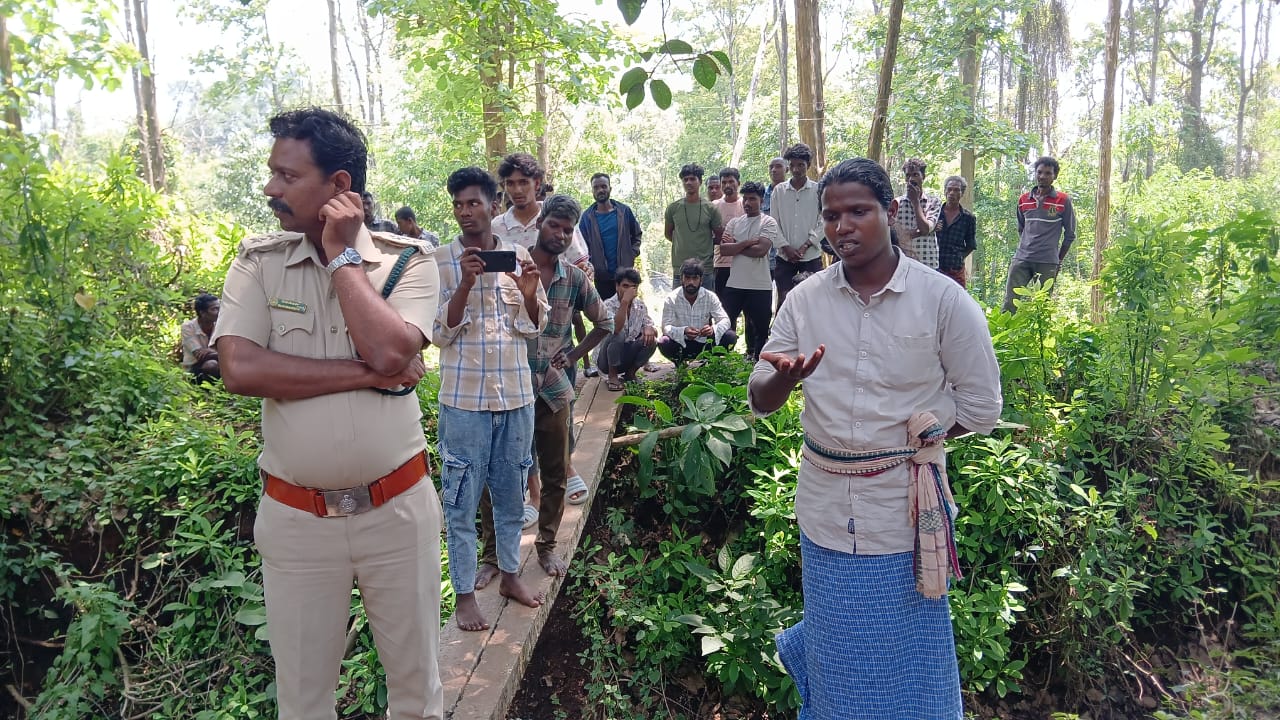Hasan Hussain
A tense standoff is unfolding in Karnataka’s Nagarahole forest, where over 100 personal from various government departments, including the Forest, state police, and the Special Tiger Protection Force (STPF) have been deployed to evict 52 Jenu Kuruba Adivasi families from their ancestral settlement of Karadikallu Hattur Kollehaadi.
The operation, which began on the morning of May 6, follows a peaceful reoccupation by the tribal community just a day earlier. On May 5, residents returned to their native village to rebuild homes and sacred spaces, asserting what they say are long-ignored rights under the Forest Rights Act (FRA), 2006.
“We are not encroachers. We are protectors of this forest. These lands are our home,” said JA Shivu, president of the Karadikallu Forest Rights Committee and a local leader with the Nagarahole Adivasi Jammapale Hakku Sthapana Samiti (NAJHSS). “If the authorities wish to speak, they must come to our Gram Sabha. This is our legal and constitutional space.”

The Jenu Kurubas, one of Karnataka’s oldest Indigenous communities, argue that their claims to the woodland were officially submitted in 2021 and backed by using joint surveys involving the Panchayat, Revenue, Tribal Welfare, and Forest Departments. The Forest Department continues to deny recognition of those claims, violating laws under the FRA, which allows a 3-month response window.
The situation escalated exponentially after officials allegedly tried to stop the members of the community from performing rituals and construction activities. By the next morning, the forest area had been heavily cordoned off. Access for the press has also been restricted, raising great concerns about transparency and the human rights of the tribals.
Leaders from across the Indigenous rights movement have also rallied in support. Pranab Doley, an activist from Assam and leader of the Community Networks Against Protected Areas (CNAPA), condemned the operation. “This is not about conservation. It’s about control,” he said.
“Forest departments, acting on NTCA directives, are pushing Adivasi communities out under the guise of tiger protection, ignoring both their rights and dignity.”
Doley also highlighted the increasing militarization of forest areas, citing measures like electrified fences and armed patrols that disrupt the daily lives of forest dwellers. Elders from the community insist the issue is one of justice, not law enforcement. “We’ve lived in and nurtured these forests for generations,” said JK Putti, a respected elder and women’s leader from Karadikallu.
“We worship the tiger and the elephant. The forest is sacred to us. But the government treats us like intruders.”

The broader implications of this conflict go beyond Karadikallu. Other villages inside the Nagarahole forest—Thundumundage Kolli Gaddehaadi, Kanturuhaadi, and Balekkovuhaadi—have also filed claims under the FRA and are watching developments closely.
In a joint statement, CNAPA condemned the state’s use of force and called for the immediate withdrawal of all personnel from Nagarahole. The organization is also demanding that the media be granted access to the site and that the forest rights of all 52 Karadikallu families be formally recognized without further delay.
As the standoff still continues, many are calling for accountability and dialogue. For the Jenu Kurubas, this is not just a fight for the land—it is a fight for their identity, culture, and rightful place in the forests they have called home for generations.































































